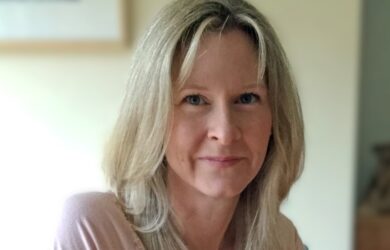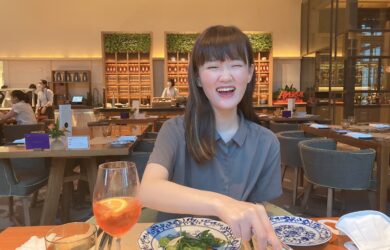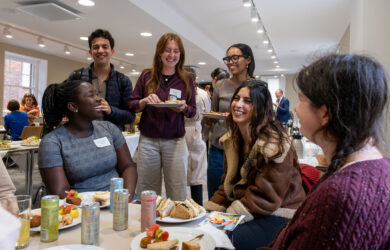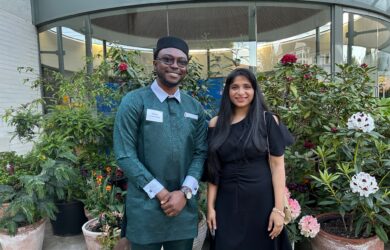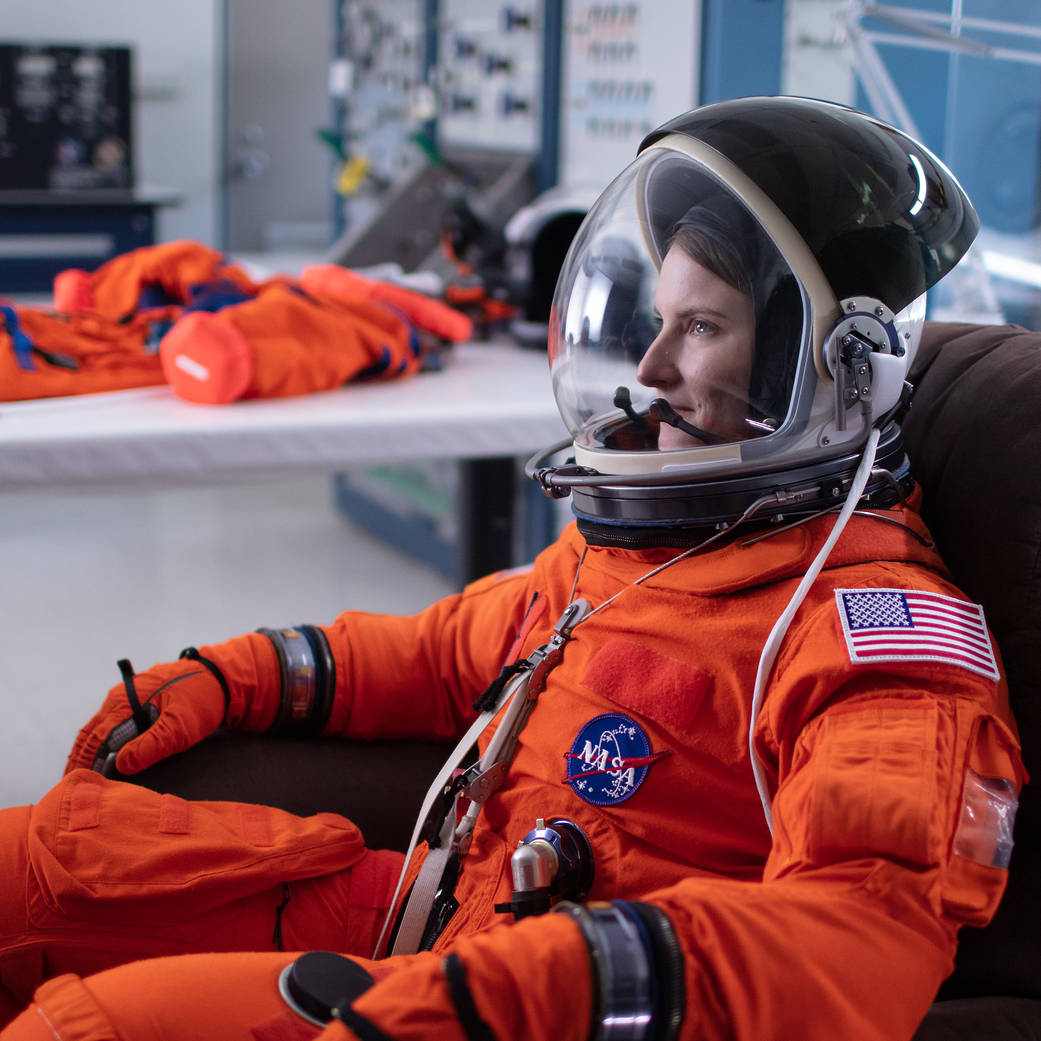
Gates Cambridge scholars are taking part in films, panel discussions and more at this year's Cambridge Festival.
Over a dozen Gates Cambridge scholars will showcase their research at this year’s Cambridge Festival.
The Festival, which runs from 17th March to 2nd April, is one of the largest festivals of its kind in the country, featuring over 360 mostly free events, and showcases cutting edge research across the University of Cambridge and beyond.
Gates Cambridge Scholars speaking at the Festival include:
Kayla Barron [2010], a NASA astronaut who did her master’s in Engineering at Cambridge. She will be speaking with public astronomer Dr Matt Bothwell about all things space in Rocket woman. Kayla Barron is supporting 24/7 operations on the International Space Station (ISS) and preparing for NASA’s Artemis missions, which will soon be heading back to the moon for the first time since 1972. It will be the first time a woman walks on the moon, and Kayla is among those hoping to make history. Last year she returned from six months on the ISS where she and her crew conducted hundreds of scientific investigations covering a wide range of disciplines. Kayla will be live from Houston and Dr Bothwell will be live in Cambridge. [20th March]
Ayala Panievsky [2018], a journalist and PhD student in Sociology, who will be speaking with award-winning journalist Emily Maitlis, co-host of the popular daily news podcast The News Agents, in the live online event Is populism destroying the media? on 20th March. Emily gave the 2022 James MacTaggart Memorial Lecture at the Edinburgh TV Festival in which she spoke critically about the BBC’s approach to impartiality in populist times and cited Ayala’s research on the topic. The event will be chaired by Dorothy Byrne, President of Murray Edwards College and former Head of News and Current Affairs at Channel Four Television.
Paulo Savaget [2015], Associate Professor of Engineering (Engineering Entrepreneurship) at the University of Oxford, who will be in conversation with Professor Jaideep Prabhu, co-author of Frugal Innovation, about his new book ‘Four Workarounds’ which shows how the most valuable lessons about problem-solving can be learned from the scrappiest, poorest groups. It draws examples from organisations dedicated to social action that have made an art form out of subverting the status quo, proving themselves adept at achieving massive wins with minimal resources. [28th March]
Political neuroscientist Leor Zmigrod [2016] who will be speaking to social psychologist Sander van der Linden, author of Foolproof, about their work on understanding what causes people to turn to political extremism and how to tackle the virus of misinformation. How to counter political extremism and misinformation takes place on 20th March.
Several scholars are taking part in panel discussions on topics ranging from food security to climate change.
Ramit Debnath, Peter Sutoris and Samira Patel will be speaking at Climate change: from despair to action on 30th March. Ramit [2018] is Cambridge Zero’s first Fellow and his research focuses on climate change misinformation, Peter [2015], an environmental anthropologist and Assistant Professor in Education at the University of York, is author of the 2022 book Educating for the Anthropocene and Samira [2022] has worked at the intersection of science and policy in the US government and is doing a PhD in the science-policy interface and how digital data infrastructures impact local communities. The event will be chaired by Professor Emily Shuckburgh, Director of Cambridge Zero.
Alina Utrata [2020] takes part in Big tech: the new colonialists? on 29th March. Alina’s PhD research examines technology corporations, focusing on the political theory of the corporation and how Silicon Valley tech companies may be challenging or affecting the power of the state. She also hosts the podcast The Anti-Dystopians: The Politics Podcast about Tech. The panel is chaired by BBC Cambridgeshire’s Chris Mann.
Emelyn Rude [2018] and Anoop Tripathi [2022] will be participating in a panel discussion How can we improve our food security? on 27th March. Emelyn Rude’s PhD in History investigates how past fish stock collapses have impacted national eating habits. She is also founding editor of Eaten: the Food History Magazine and author of Tastes Like Chicken: a History of America’s Favourite Bird. Anoop Tripathi is doing his PhD in Plant Sciences seeks to find a way to increase rice yields by 50% in environments that have been hit by climate change. The panel is chaired by Dr Nazia Mintz Habab, Founder and Research Centre Director for the Centre for Resilience and Sustainable Development.
And three Scholars will be featured in the film Cambridge Imagines on 23rd March which showcases early careers researchers at the University of Cambridge. Richard Dear [2021] will talk about his research on depression, Lyndie Zollinger [2020] will outline her research on how imaging techniques and biomechanical modelling can be used to treat knee injuries in humans and dogs and Stanley Onyemechalu [2021] will talk about his work on the impact of the conflict known as the “Biafran War” on the cultural identity and patrimony of the Igbo people in Nigeria.
To book your place on any of the events, click on the event links above.








